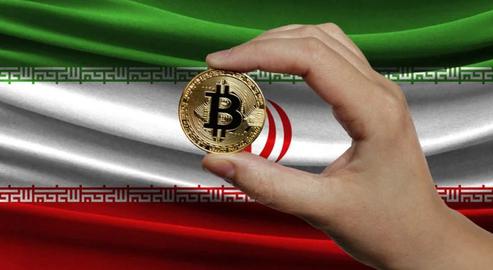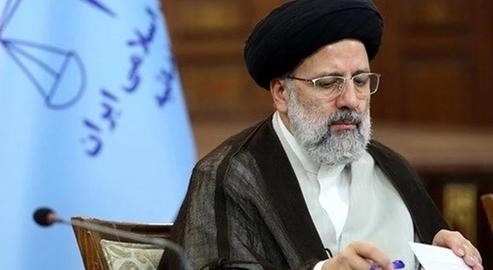On Monday, May 17 it emerged that Sina Estavi, CEO of Cryptoland, one of the biggest digital currency exchanges in Iran, had been arrested. The incident caught investors by surprise, and ever since then, the issue of cryptocurrency trading in Iran has been in the news.
Estavi’s Twitter account was also seized by Iran’s Organized Cyber Crime Police as well and an explanatory tweet was posted under his name. “The owner of this media outlet was arrested on charges of disrupting the economic system, by order of the Special Court for Economic Crimes,” it read.
The news has cryptocurrency buyers and sellers in Iran extremely concerned about what will come next. “We are hanging on every word uttered by Elon Musk, Mark Zuckerberg, Bill Gates and the likes of them,” says Milad, a 28-year-old who trades in cryptocurrency alongside his day job at a private transport firm.
“I’m not a risk-taker,” he adds, “so it wasn’t easy for me to get the world of digital currency. A few months ago I bought a small amount of Dogecoin on a friend’s encouragement.
“At the time Dogecoin cost around 10 cents. But of course, it was more expensive for us dealing with Iranian money exchanges. I bought about 2.5 million tomans’ worth [$578] and kept it. The price was up and last week, before Elon Musk gave his talk, it rose very high and reached 70 cents per coin.
“I sold it right then and there. That much profit was enough for me. Thank God that I sold it at the right time. Others kept it, hoping that Dogecoin would go up after Elon Musk gave his talk [in which the tech billionaire ended up disparaging Dogecoin as a serious currency], but then it began to fall instead and now they’re upset.
“I don’t gamble with my life. I spend the money on buying cryptocurrencies that I can live without. But there are many who are not like me.”
Big Investors Tell of Life on a Digital Knife-Edge
Among the Iranians in a more difficult bind is Mobina, a single mother who has put all the surplus income she has into cryptocurrencies. Fluctuations in the market give her the jitters. But with Estavi’s arrest, she now has another worry on top of this: “If they take action against exchanges, life for us will become much more difficult.”
Mobina got into the game before Iran had any digital currency exchanges of its own. “To tell the truth,” she says, “it was really difficult in the beginning. We had to use an app to connect to websites like Binance – and Binance did not offer its services to Iran.
“So, we had to connect to it through the VPN - from another, specific country. We were always afraid. Once Binance send a message to a friend of mine, telling him that ‘We’ve found out that you live in Iran and you must empty your digital wallet within 48 hours. Otherwise, your account will be closed.’
“I was always fretting that I was going to get a message like this. I rested easier after digital currency exchanges opened in Iran but now, again, the situation is unpredictable and I fear they’ll take action against the digital money-changers.”
A Booming Trade as Restrictions Bite
A few days ago, Mohammad Reza Pour Ebrahimi, chairman of the Iranian parliament’s Economic Commission, announced that every day up to five trillion tomans (over $1.1 billion) of cryptocurrency is traded in Iran.
On some Iranian sites and apps, cryptocurrency trading takes place person-to-person, meaning there must be an individual buyer for each seller. A small percentage of the value of the trade, around 0.01 percent, goes to the trading platforms. But on some others, the platform sets its own prices and is the one doing the buying or selling. These facilities are available 24 hours a day to buy and trade in multiple types of cryptocurrency.
Majid is an Iranian cryptocurrency veteran. He started by mining bitcoin but didn’t have much luck. “Me and a few of my friends put together all the money that we had, bought Chinese mining devices, rented a room somewhere in Tehran and started mining,” he said.
“Every day we checked the price of Bitcoin against the amount we had made, calculated our income and relished it. But it didn’t take long for our rented place to be identified because of the high fluctuations in electricity use in the area, and everything fell apart.
“In a way, though, we were lucky because they [the police] returned the mining devices to us and we sold them at half the price. Now, with the new regulations for cryptocurrency mining and the money we have to pay the government for electricity and taxes, it’s not worth it anymore. It seems like if I stayed home I’d lose less money.”
After the regime moved to crush unauthorized Bitcoin mining in Iran, Majid tried his hand at other types of coin instead. “At first you only could get the information you wanted from the internet, and from translations of what big cryptocurrency capitalists were saying.
“But, like for everything else, soon there were online classes and WhatsApp and Telegram groups. The classes, run by people active in the field, became very popular and some of them went on to create digital currency exchanges in Iran. As middlemen, they buy digital currency from international portals or sell it to them. And they take a cut for themselves.”
Soheil is the owner of a computer hardware store and very active in cryptocurrency trading. “Before the Iranian sites and apps were launched,” he says, “trading was very risky because of the sanctions and Iran’s other international problems.
“But now several apps and sites are active in Iran. Even at 3am, you can buy cryptocurrency or convert it to Iranian rials. Of course, the price differences are extreme: one exchange might buy a $2.80 coin for $2.20 and sell it to you for $2.90. Some are more reputable than others.”
Now, though, he says the situation is more unstable than ever. “For the past few days all the values are going down. My $6,000 wallet lost $700 this week. And the exchanges’ situation isn’t clear either. In our Islamic country, when they see that something is working, the first thing they want to do is shut it down. That’s what happened to Cryptoland – and its owner, Sina Estavi.”
This article was written by a citizen journalist in Iran under a pseudonym.
Related coverage:
Official Report: Iran Could Use Cryptocurrencies to Avoid Sanctions
Iranian-Chinese Facility to Restart Bitcoin Mining After Blackouts
Fact File: Did Bitcoin Mining Lead to Blackouts in Iran?
visit the accountability section
In this section of Iran Wire, you can contact the officials and launch your campaign for various problems


























comments